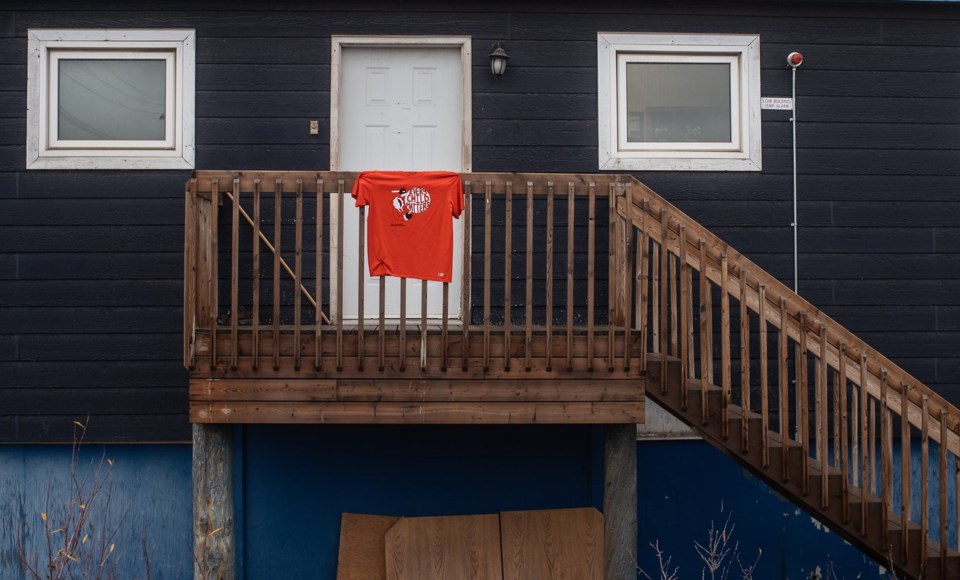MEADOW LAKE, Sask. ŌĆö First Nations leaders say the pride two Saskatchewan courthouse staff felt on the National Day for Truth and Reconciliation turned to shame after they were told to change out of the orange clothing they wore to work.
The Meadow Lake Tribal Council, which represents nine First Nations, is demanding Saskatchewan investigate why the two First Nations women were told Monday to go home from the courthouse in Meadow Lake, northwest of Saskatoon, to change their clothes.
"Those two ladies that were shamed (were) so proud when they left that morning wearing their orange shirt and their orange skirt," Richard Derocher, a vice-chief with the council, told a Friday news conference.
"One of the ladies is a ŌĆ” second-generation (residential school) survivor ŌĆ” they silenced her spirit.
"A full investigation must be conducted, and necessary steps must be taken to ensure this situation does not repeat itself."
Many wear orange shirts on Sept. 30 to honour residential school survivors, including Phyllis Webstad, who has described having a brand new orange shirt taken away on her first day at one of the institutions.
Craig McCallum, vice-chief of the Federation of Sovereign Indigenous Nations, or FSIN, questioned the message the courthouse was sending.
"How can we expect a system to deliver justice for Indigenous people, when it refuses to acknowledge the very history that continues to harm us," he asked.
"To those in power, I say honour the voices of your employees ŌĆ” we need to educate your people. It's not just judges and lawyers. It's the bailiffs, the court reporters, everyone in those systems needs to be educated on the true history of our nation."
McCallum said the National Day for Truth and Reconciliation, also known as Orange Shirt Day, "is not just a symbolic gesture."
"It represents a critical commitment to reconciliation and confronting Canada's dark history."
During the news conference, Indigenous leaders also renewed calls for Saskatchewan to join several other provinces in making Orange Shirt Day a statutory holiday.
"It's a disgrace and it's an embarrassment," said David Pratt, another vice-chief of the FSIN. "We have the highest amount of living survivors in the entire country. Think about that."
Saskatchewan's Ministry of Justice said Friday it can't speak to government policies or programs during the ongoing provincial election campaign. Voters go to the polls on Oct. 28.
"You are welcome to inquire again once the election restrictions have been lifted," a spokesperson told The 91įŁ┤┤ Press in an email.
Saskatchewan Party Leader Scott Moe, who is vying to return to the premier's office, said at a campaign stop this week that he's open to expanding existing legislation that permits court workers to wear poppies on Remembrance Day to include wearing orange on Sept. 30.
"I would say there is a discussion that should be had around that piece of legislation and what happened the other day with the orange shirts being removed from the courthouse," he said.
"I won't conclude ŌĆ” what those discussions might be, but I would be happy to entertain that discussion."
He also said conversations about making Sept. 30 a statutory holiday are ongoing.
"That discussion was never off the table," he said, noting Saskatchewan has one of the highest number of statutory holidays in Canada.
NDP Leader Carla Beck said Friday that if her party forms government it would make the day a provincial holiday.
This report by The 91įŁ┤┤ Press was first published Oct. 4, 2024.
ŌĆö By Fakiha Baig in Edmonton
The 91įŁ┤┤ Press



